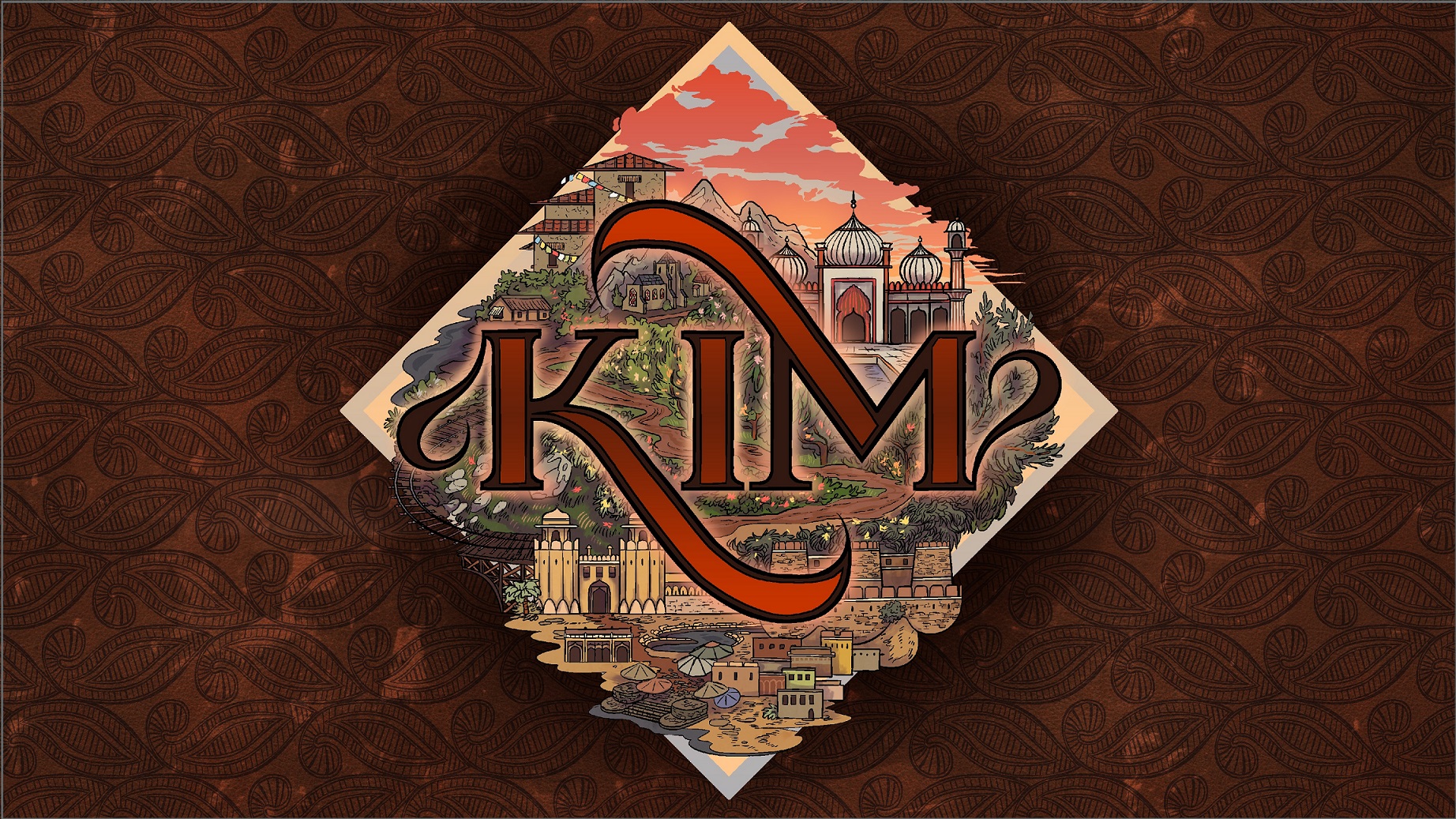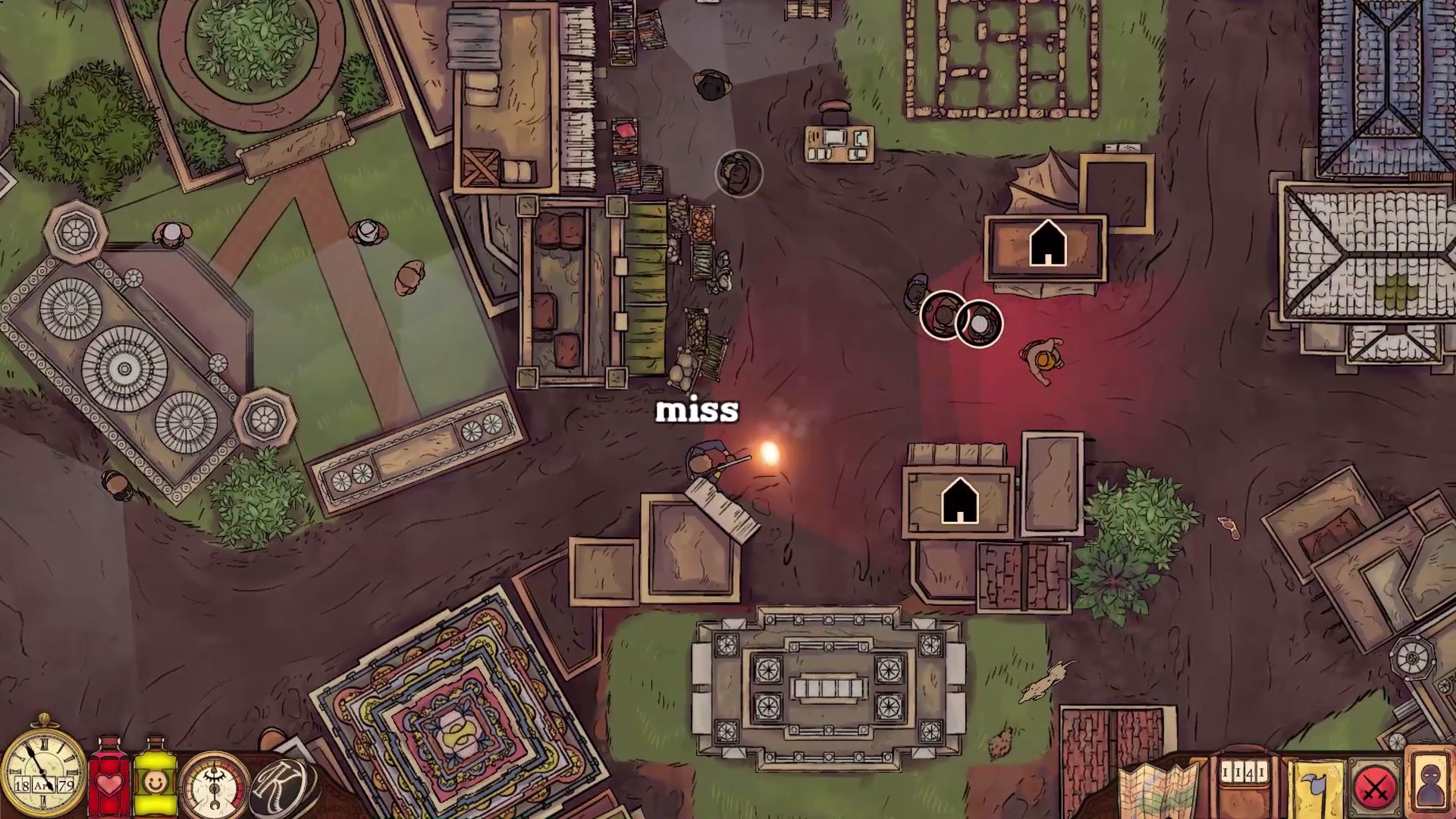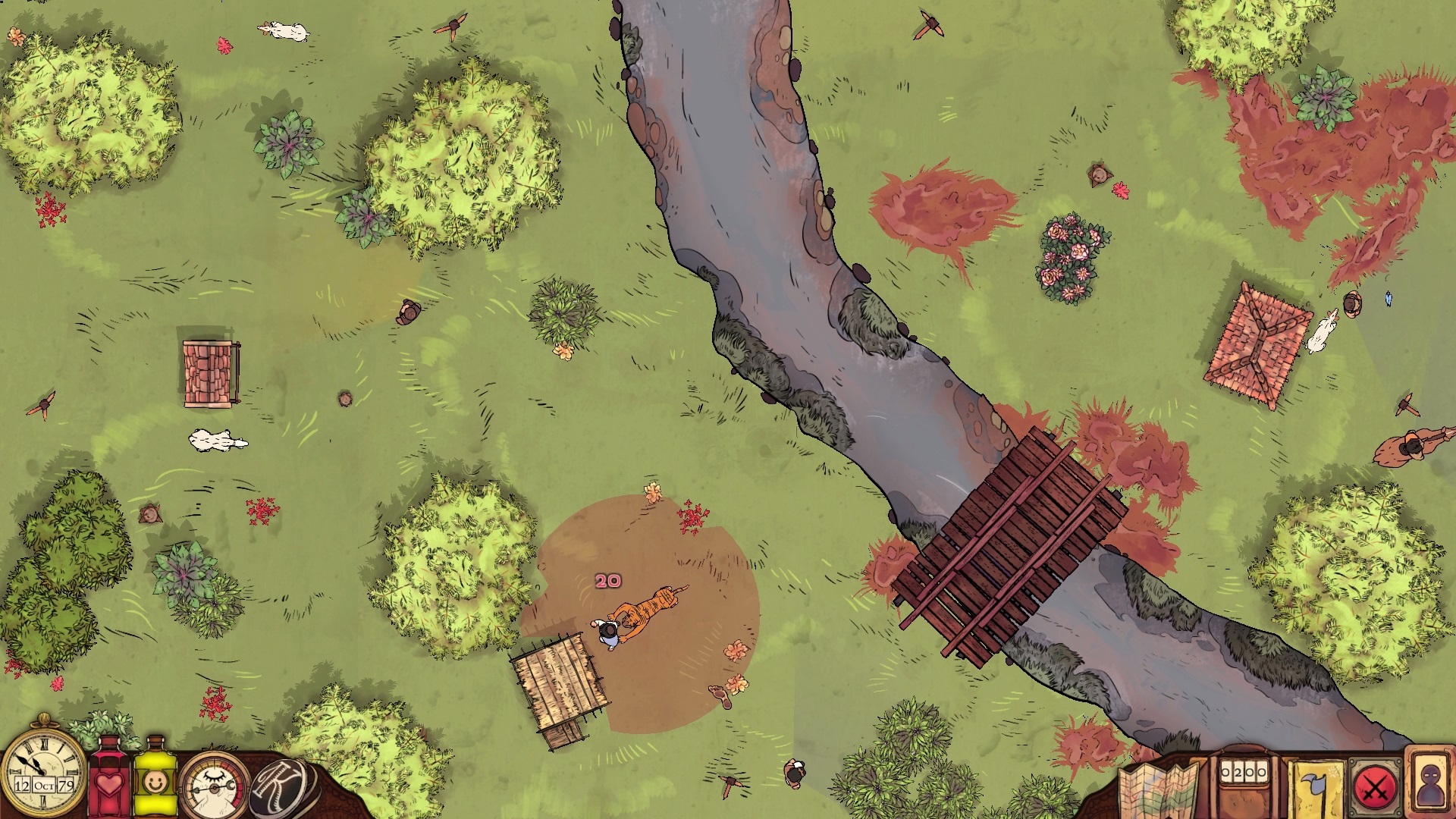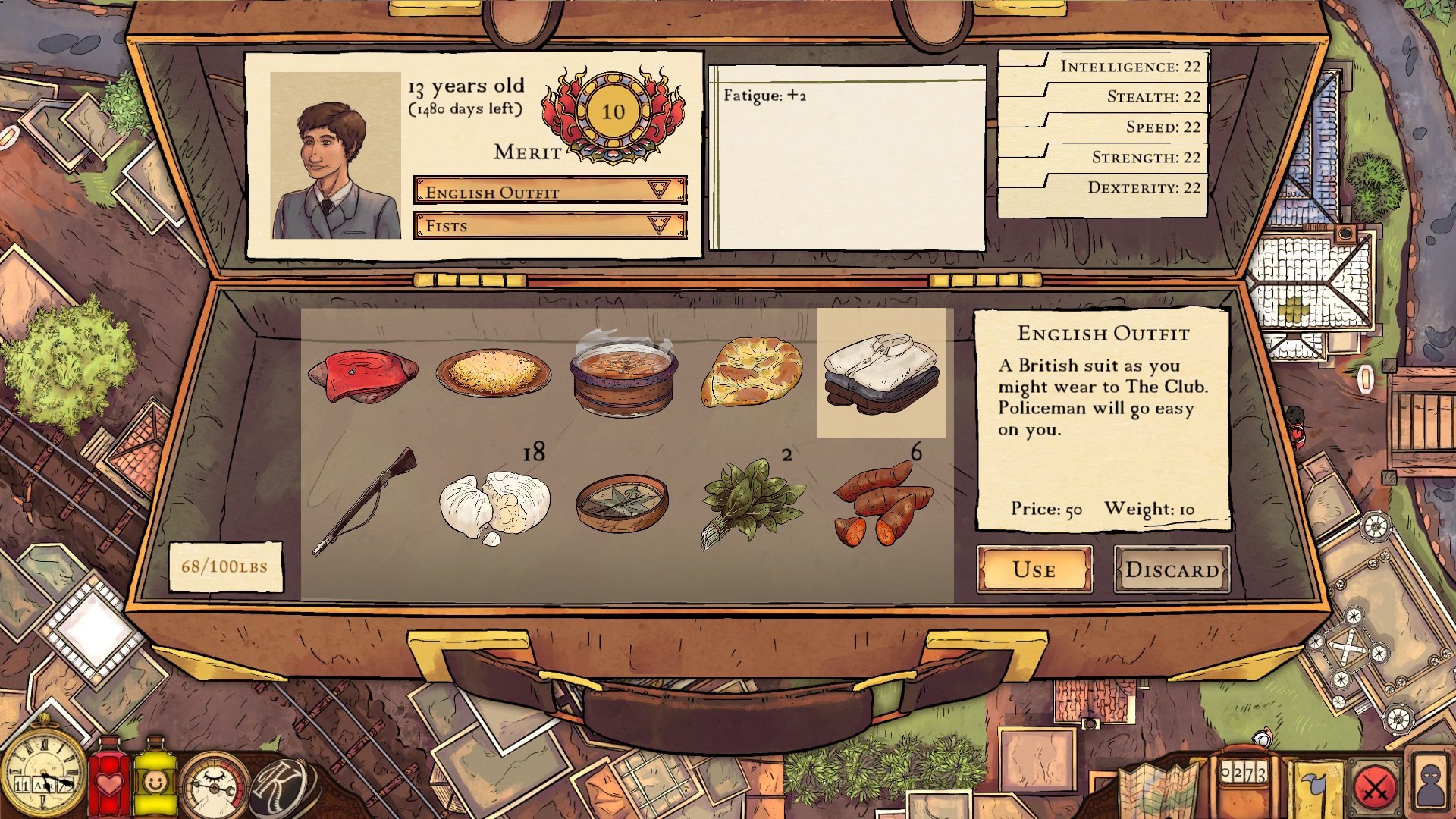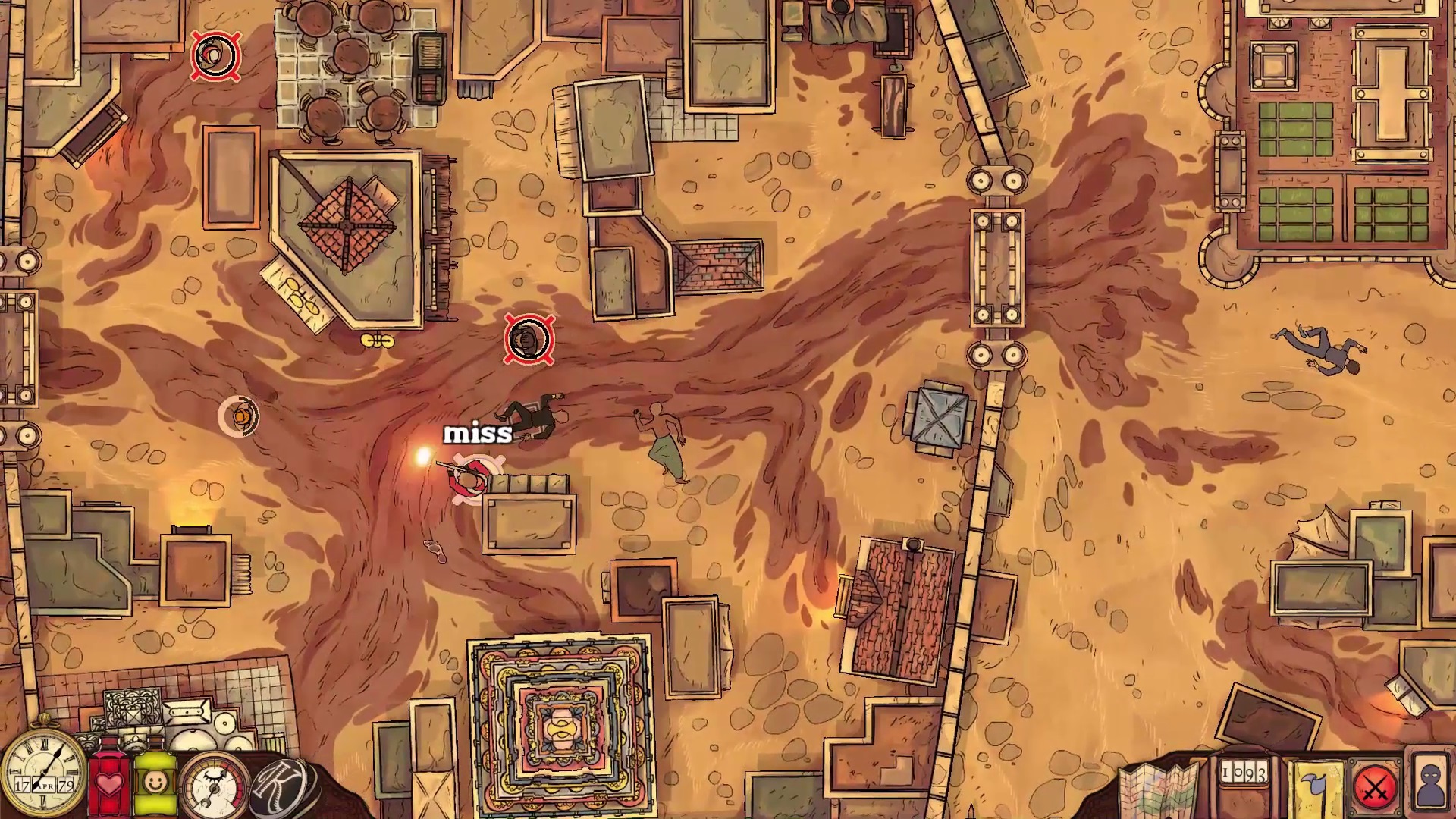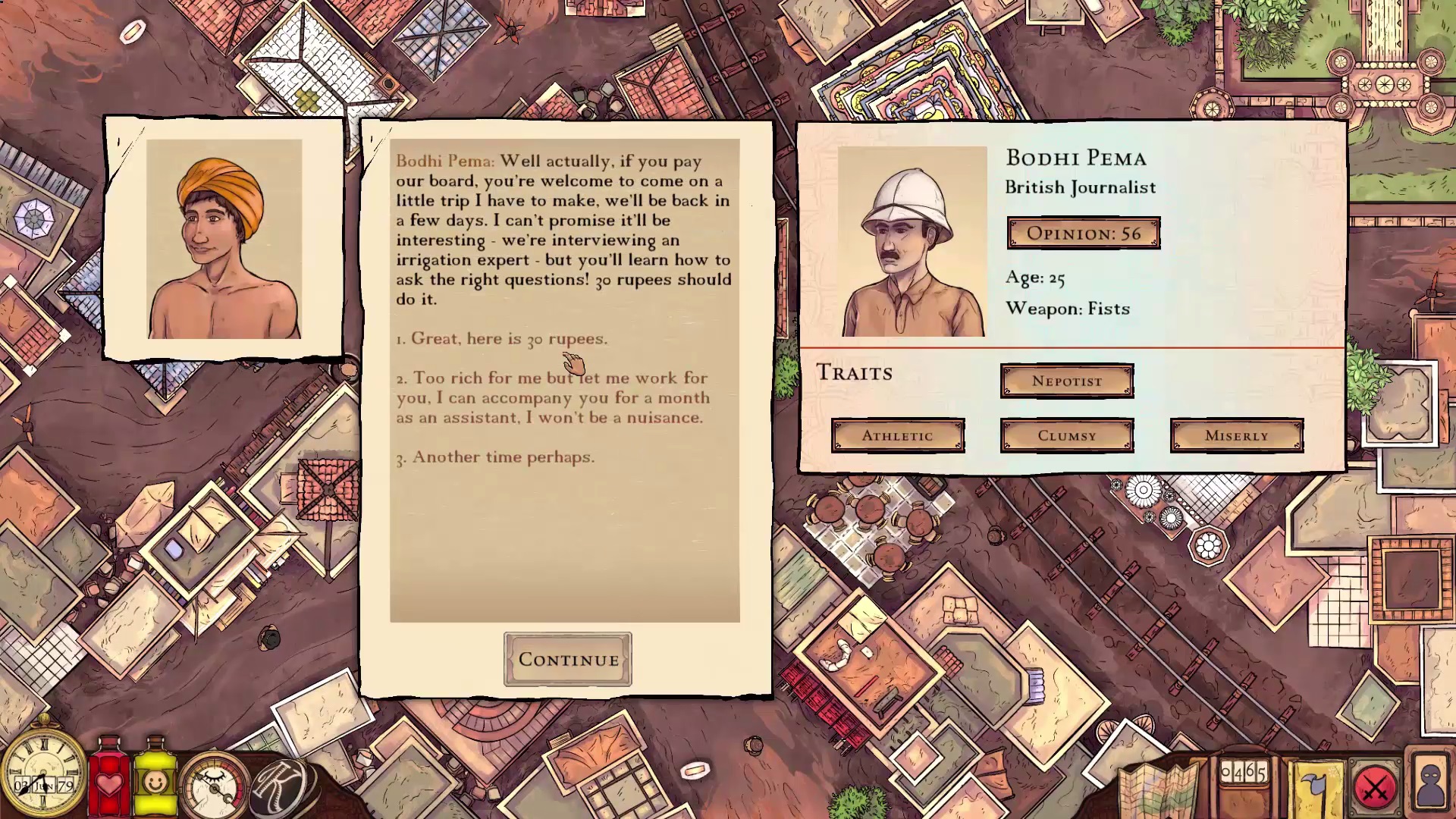Kim is an unusual game for a number of reasons. Its classic looking cel-shaded graphics, unique setting, and Rudyard Kipling inspiration make for a type of project you don’t see every day on Kickstarter, but one that is perfect for the platform. With two weeks left in the Kim campaign we shot the games’ developer, Jeremy Hogan, some questions about the game and the progress of the Kickstarter campaign.
Cliqist : Can you start us off by telling me a little bit about yourself?
Jeremy Hogan : My name is Jeremy Hogan, I’m a 31 year old game designer living in London and running indie micro-studio, The Secret Games Company. I’ve been working in games for nearly a decade, beginning with board games, then mobile games, PC/console games and now, the best of all, indie games! My first independent project was Dreaming Spires a board game about the history of Oxford University. That was followed by PC strategy game, Rise: Battle Lines, which is now on Steam and coming soon to iPad.
Cliqist : What inspired you to create Kim?
Jeremy Hogan : The book! I loved reading it, the writing is as good as anything I’ve ever read. Also the setting, colonial India, is fascinating to a history buff like me. India is such an old country with so many traditions – religious and cultural – which are wonderfully exotic to Westerners at least. I liked the idea of making a game that showcased Kipling’s writing but didn’t present it in a linear story, instead you can explore the world and create your own story. You will discover characters and plots from Kim and from other Kipling stories – he wrote a lot of short stories set in India where he was born and also worked his “7 years hard” as a young reporter.
Cliqist : Why not just go with a post-apocalyptic world filled with zombies?
Jeremy Hogan : Don’t get me wrong, I like a zombie as much as the next man but part of the attraction of this idea over some of the others was its originality. I’m a keen reader and try to read the classics and I felt that video games had made little use of these worlds and stories, which by their longevity have proven that they have something special. Films and TV are always revisiting the great novels of yesteryear – I’m loving the BBC’s War and Peace, which is on at the moment in the UK at least – I felt it was time for a game about a book.
Cliqist : The Kim Kickstarter goes against common campaign methodology by only having two reward tiers, yet it’s still succeeding. What was your thinking behind this?
Jeremy Hogan : We’d been in full production on Kim for a year when the campaign launched, we wanted to attract a group of early players and raise a little more funding. Launching on Early Access and self-publishing makes it harder to get noticed so this is our way to get the word out ahead of time and find people, who are as excited about the game as we are. We have a clear idea of the game we want to make and we didn’t want to take too much time away from the development process so stretch goals and extra pledge rewards didn’t seem to fit with our aims. Hopefully prospective backers understand that and share our view that this strategy will produce the best game in the end.
Cliqist : Your commitment to not sell Kim for less than what Kickstarter are getting it for in the first year is an interesting move. What inspired that? Any concern that you’re restricting yourself unnecessarily?
Jeremy Hogan : We think £20/$30 is a fair price for a game of this size and for the Kickstarter, we’re offering a 25% discount, which is the lowest we’ll go in the first year. I want people, who like the look of the game, to buy it sooner rather than later so this is our way of giving them confidence that they won’t be over-paying.
Cliqist : Your campaign mentions a March 2016 Early Access launch date, which is pretty soon after the Kickstarter ends. Any chance backers will be able to get a playable version of the game before the Kickstarter ends?
Jeremy Hogan : We’ll probably send Steam keys to Kickstarter backers a little before we launch on Early Access but our priority now is polishing the game and fixing bugs. As a small team, we have to minimise distractions so while we’d love to get the game in front of more people now, we think it’ll be better to wait a little longer.
Cliqist : Is there anything you’d like to share about yourself or Kim that we haven’t covered?
Jeremy Hogan : Kim is a mix of genres so it can be hard to categorize and what you do in the game is truly up to you. We’ve striven to make different ways of playing equally viable and one of the main aims of our Early Access period will be to continue to tune the game balance to support as many strategies as possible. Combat and stealth are tools at your disposal but rarely ones you are forced to use. Branching narratives, exploration, simple survival mechanics and traditional RPG progression via stats and items are the cornerstones. Games which inspired some of these systems include Don’t Starve, FTL, Expeditions Conquistador and Sunless Sea.
Cliqist : Why should someone back Kim?
Jeremy Hogan : Back Kim if you want to play a game that puts you in the shoes of a cheeky young vagabond in colonial India and asks if you can live his youth as well as Kipling told it.
Cliqist : Not to be grim, but what if the Kim Kickstarter doesn’t hit its funding goal?
Jeremy Hogan : The Kickstarter money is to pay for an external QA company; if the campaign isn’t successful, we will either seek funding elsewhere or sign with a publisher, who would take care of the QA, but that would mean giving up a stake in the game.
Cliqist : Can you close us out with a Kim inspired Haiku?
Jeremy Hogan :
India beckons
An open world adventure
Come of age as Kim!
Thanks to Jeremy for taking the time to answer our questions. if you’d like to learn more about Kim you can head over to the Kickstarter page. If you’re interested in learning about the Rudyard Kipling’s novel Kim, you can learn about it here.
